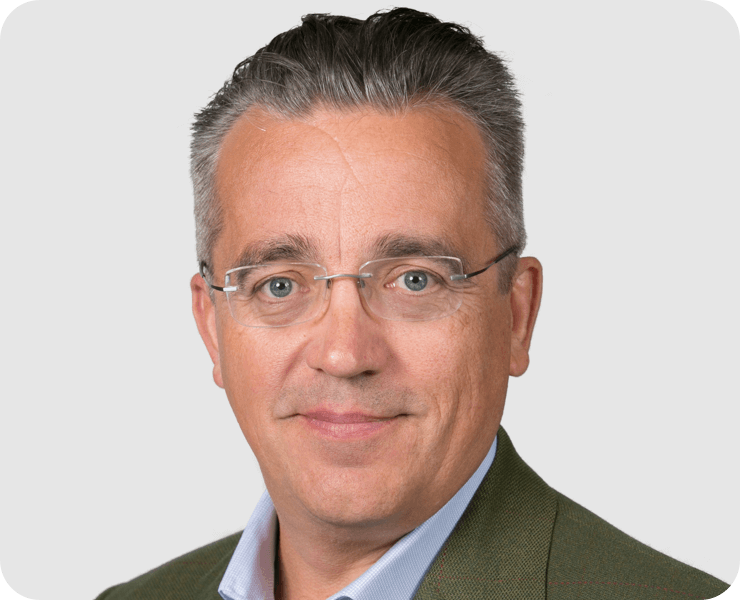Or listen in your favorite podcast app
Apple Podcasts / Google Podcasts / Stitcher
Phil Tee would tell you he is a math and physics nerd. But his LinkedIn tells a different story, one about a multi-time founder who currently serves as the co-founder, chairman and CEO of Moogsoft. On this episode of IT Visionaries, Phil explains how he went from studying theoretical physics to finding a place in the tech industry and then taking off from there. He dives into the big operational problems Moogsoft is trying to solve with A.I, and he shares all the lessons he has learned through founding multiple companies.
Best Advice: “Listen.”
Key Takeaways:
- How Moogsoft is solving operational problems with A.I.
- Lessons learned as a multi-time founder
- The benefits of building a company in Silicon Valley
Phil’s start in tech
Phil grew up during the beginning of the PC revolution when technology was just starting to break through. Initially, Phil did not pursue tech as a career, instead favoring theoretical physics, but he found himself using computers more and more to analyze data and eventually decided to move into that industry. As he made his way in the industry, Phil also jumped on numerous opportunities to invest in and start companies of his own.
Founding Moogsoft
Moogsoft was founded to help companies manage the complexities of operations in the digital world through the use of A.I. Because the infrastructure of companies is so much more complex than ever before thanks to the number of applications people use, the multi-cloud system, and the various networks businesses run on, doing simple tasks can be more difficult than they were before when you only had one legacy system to deal with. Humans can only understand and accomplish so much, and because every human has a limit, most companies would just hire more humans and throw them at problems. What Moogsoft does is provide A.I. solutions to the complexities of the operations so that humans are freed up to do more high-value work.
“A.I. is a essentially a tool to automate and control a system that has just gotten an infinite number of degrees more complex and so fast-changing that trying to make some rules-based system or a kind of a behavioral model is really not sufficiently accurate enough or capable or powerful enough to shape and form around turning the business mission of availability into the individual actions of what a technical person needs to do to the systems to keep them available and running well.”
“I think that over the course of the next five to 10 years there is going to be an opportunity for a company that is attentive to customer needs and willing to genuinely innovate as opposed to jumping on a bandwagon….Our commitment to innovation in this space is genuine, vigorous and supported by the board all the way down through myself. I don’t think that that is a true statement for all the players in this market. I think there’s a lot of opportunists and the customers will not benefit from them.”
Evolving as a founder
Things change so fast that if you don’t adapt, you’ll never succeed. Phil admits that he does not have all the answers and he never will because no matter how many questions you answer, there will always be new ones that pop up in their place. In that sense, Phil believes that being a founder isn’t about how much you know, it’s about character strength. It’s not easy and there’s no easy way to start a company. You have to be persistent and prepared for all things — including having no money, or, on the flip side, knowing how to manage when you do have money.
One of the biggest lessons Phil has learned throughout the years is to think twice about decisions he is about to make. Your gut is a good guide, but you can’t just follow it blindly, he explains.
Another lesson Phil shares is the importance of company culture. If your employees aren’t happy, good work is very hard to accomplish. Also, when you have a good culture, good workers will more naturally be attracted to your company.
“I’m a strong believer in [being a founder] is a test of character rather than a test of knowledge. You have to meet the challenge of a new company.”
“The single most important thing that a company has is its culture. Pretty much everything else is secondary. We’re a people-based industry and, ultimately, Moogsoft is the product of the efforts and the passions and the energies of the 230-plus people that make up the business today…. It’s actually the culture of the company that supports and attracts the right people to deliver what it is that we’re trying to deliver.”
“There’s no easy route. You have to be super persistent. You have to be passionate. You have to be prepared to be poor because you know, it doesn’t pay very well being an entrepreneur until it pays a lot. And you know, if it pays a lot, you have to be willing to take a lot of reverse and just keep going.”
Do you really need to be in Silicon Valley?
Phil believes that it is possible to build a great company anywhere. However, he does admit that there are certain network effects that occur when you build within Silicon Valley. There is such a wealth of capital, talent and infrastructure that simply being around those assets helps mitigate risk a tiny bit, which in business could mean success or failure. So, no, you don’t have to build a company in Silicon Valley, but it often makes sense to when you consider what all the Valley has to offer.
“Just the pure concentration of smart, aggressive, available capital, smart entrepreneurial talent, and the infrastructure… literally everything you need to be the next Google is within 30 minutes … And that is unique on planet earth. And the effect of that is to remove some risk, some delay, and alter the odds at tiny, tiny, tiny bits in your favor. Who wouldn’t want to do that?”
Mentions:
- Dark Sky
- The Possibility of an Island, by Michel Houellebecq




